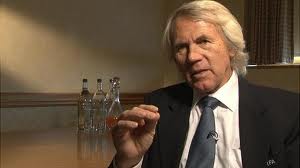By Andrew Warshaw
August 4 – FIFA’s top medical man has re-iterated there is no systematic doping in football following three reported cases of players testing positive this year in FIFA competitions.
Chief medical officer Jiri Dvorak insists that unlike in other sports, doping is not a significant problem.
Tahiti, the smallest nation ever to compete in a senior football tournament, found itself at the centre of unwanted attention last week after FIFA announced one of its players tested positive at the recent Confederations Cup in Brazil.
In March Peru midfielder Joel Sanchez was banned for two years after testing positive for the stimulant methylhexaneamine after a World Cup qualifying match in Bolivia last October. And the Jamaica football federation recently confirmed one of its players failed a test after a qualifier in Honduras in June.
Following the recent publication of a report on doping in sport by a commission of the French Senate, rumours have been circulating about the anti-doping procedures in football in the late 1990s. But Dvorak has come out fighting to explain how the fight against doping has evolved.
Dvorak says that under his supervision, medical officers conduct more than 30,000 sampling procedures every year, in which they get between 70 to 90 positive cases, mostly for marijuana and cocaine and some for anabolic steroids.
“These are individual cases. There is no systematic doping culture in football,” Dvorak told FIFA’s website. “As a scientist I believe in facts and figures, not in speculation. FIFA is always compliant and follows the protocol of WADA and the IOC.”
Dvorak said that FIFA would try to persuade other football organisations to start biological profiling in football, similar to the biological passports in cycling. FIFA launched biological profiling back in February, which was tested at June’s Confederations Cup and will be again at next year’s World Cup.
“We want to be more efficient but also cost effective,” said Dvorak. “There are hundreds of millions spent on doping controls and the fight against doping worldwide and we think that if we establish a biological profile, then we will have a longitudinal follow up of each player by testing blood and urine with several samples procedure of the same player, and if we have a suspicion we can be much more efficient and go into targeted testing.”
“We also think that it would have a much more deterrent effect from an educational point of view, because then it’s very difficult to manipulate or cheat since we have the longitudinal results.”
Contact the writer of this story at moc.l1745071160labto1745071160ofdlr1745071160owedi1745071160sni@w1745071160ahsra1745071160w.wer1745071160dna1745071160

